Every bride wishes for a perfect wedding. It’s a momentous event they would want to fondly remember for the rest of their lives, and any form of drama or tension is the last thing they want.
Unfortunately for this woman, the memories of her big day were forever ruined. It was all thanks to her entitled sister-in-law, who not only wanted to wear a similar dress, but also hired her own makeup artist in what appeared to be a bad case of main character syndrome.
The bride has since tried to look past the sour moments, which had understandably left a bad taste in her mouth.
No one wants a tension-filled wedding ceremony
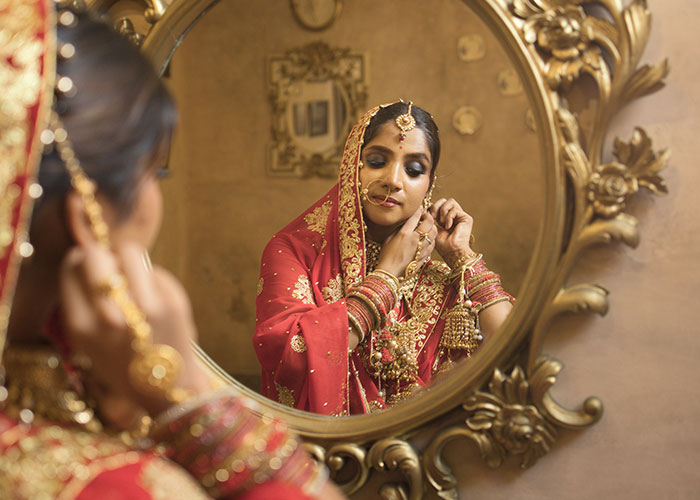
Image credits: Aditya Saxena / unsplash (not the actual photo)
Unfortunately for this bride, her big day had been marred by drama, thanks to her sister-in-law

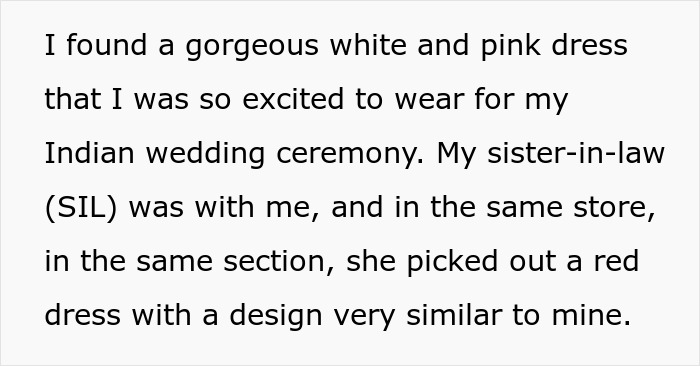
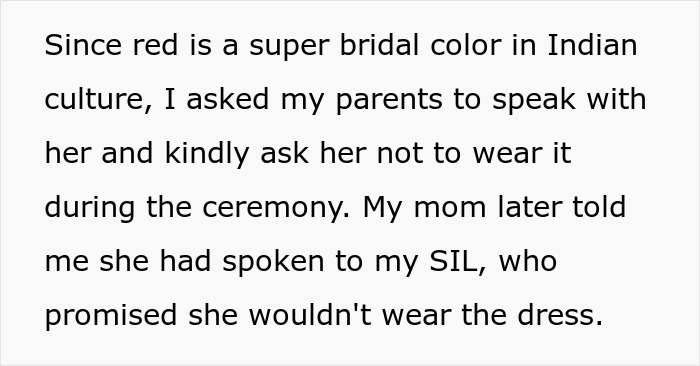

Image credits: Curated Lifestyle / unsplash (not the actual photo)
Her SIL persisted with her entitled behavior, and even caused a scene at the event
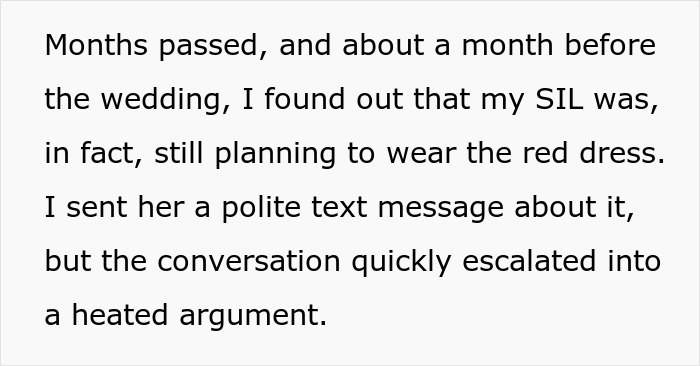
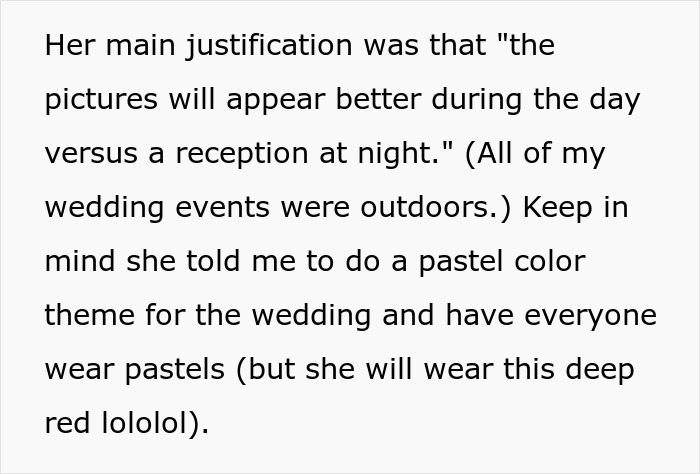

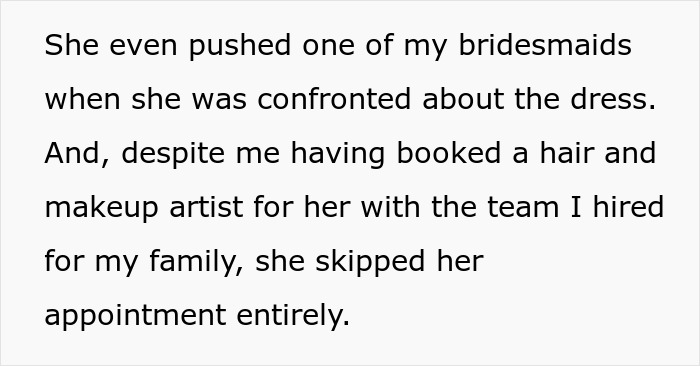

Image credits: Curated Lifestyle / unsplash (not the actual photo)
Worse, the she also tried her hardest to make herself feel like the star of the show
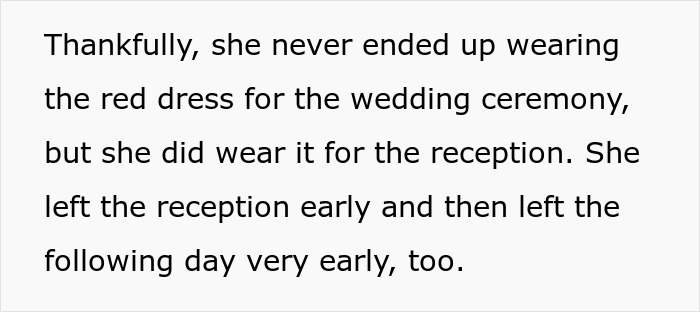



Image credits: Kolkata Models / unsplash (not the actual photo)
The bride has since tried to look past the unpleasant moments, which has been difficult


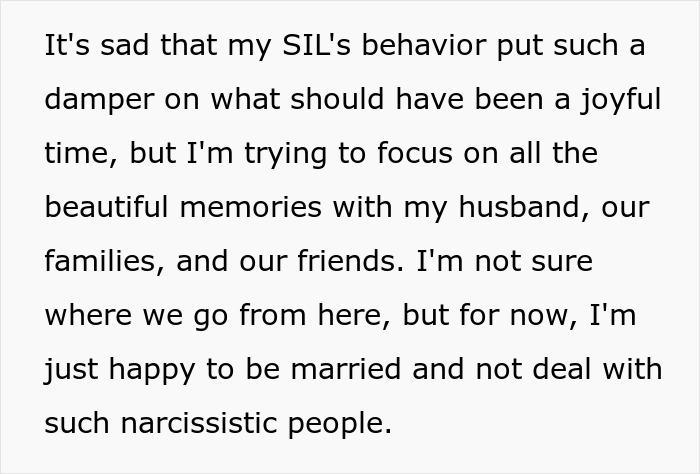
Image credits: South_Hovercraft4919
Family spats are a common occurrence during weddings

Image credits: Virginia Marinova / unsplash (not the actual photo)
We spoke to a few experts who have dealt with wedding drama firsthand. The consensus is that these unpleasant and unfortunate incidents are a common occurrence because of one common root cause: jealousy.
According to wedding planner Kastina Morrison, founder and owner of Minneapolis-based event planning company Kastina & Co., weddings tend to bring out family dynamics that have been “brewing for years.”
“The real red flags usually show up before the wedding,” Morrison told Bored Panda. “The bachelorette party, the bridal shower, even dress shopping — these events give a preview of how the wedding day could go if boundaries aren’t set.”
Kimberly Lehman of Love, Laughter & Elegance Wedding & Event Planning shared a similar sentiment, that other deep-seated family issues may arise, which include parental favoritism, poor self-esteem, differences in financial situations between each family, and the differences in expectations from everyone involved.
Sarah Olson, owner and photographer at Boston-based boutique wedding studio CityLux, gave a more accurate figure, stating that pre-wedding conflicts among family members happen 15% of the time during their events each year. And based on her observation, another factor came to light: the desire for control.
“The thing we see most often is them trying to control everything. Telling us how to take photos or asking why we aren’t taking certain photos. Telling the bride what to wear or how to wear it. Being very demanding and wanting attention from the vendors and guests,” Olson said, adding that the bride is often well aware of these toxic traits, typically from their in-laws.
Weddings are important and emotion-stirring events, and according to wedding designer and Dreamers & Lovers founder Yanique Barnes, they can bring about the worst in families.
“It is rarely about malice. More often, it is about deep-seated dynamics,” Barnes said.
Containing or preventing wedding drama is more than just setting boundaries

Image credits: Tamara Govedarovic / unsplash (not the actual photo)
Setting boundaries is easier said than done, especially if you don’t have a specific approach. Fortunately, our experts were kind enough to share actionable tips. Morrison advises asking a trusted family member who understands the volatile dynamics to step in when things get out of hand.
“And if you know it’s a serious concern, hire a planner who’s trained to de-escalate tense moments,” she said, adding that some wedding professionals like herself have a background in psychology and may be equipped to handle such situations.
Therapist and Creative Wellness TMS clinical director, Dr. David Simonsen, LMFT, also urges having a “third party” appointed by both the bride and groom to handle unforeseen problems.
“Ultimately, they have permission from the bride and groom because they are trusted by them to do what is necessary to keep the focus of the wedding on the bride and groom,” Dr. Simonsen said.
Lehman and Olson recommend assigning tasks to specific family members, like attending to dress appointments, helping select invitations, or making phone calls to vendors for specific event-related questions. The goal is to make them feel involved and not left out.
Lehman also advises involving the wedding planner and coordinator by giving them a heads-up that a problem may arise. She also suggests having a taxi or car service ready in case guests are asked to leave.
Our experts agree that it’s mainly about the bride keeping her peace and staying focused on what truly matters, which is to celebrate love and create lasting memories to fondly look back on.
Fortunately, the bride in the story has enough emotional maturity to make the effort to look past the unpleasantries and move forward.
People in the comments had their questions and pieces of advice, as many of them sympathized with the author












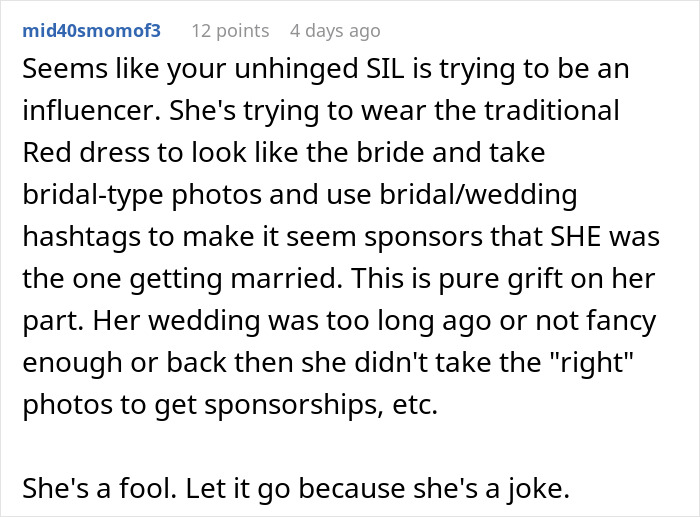
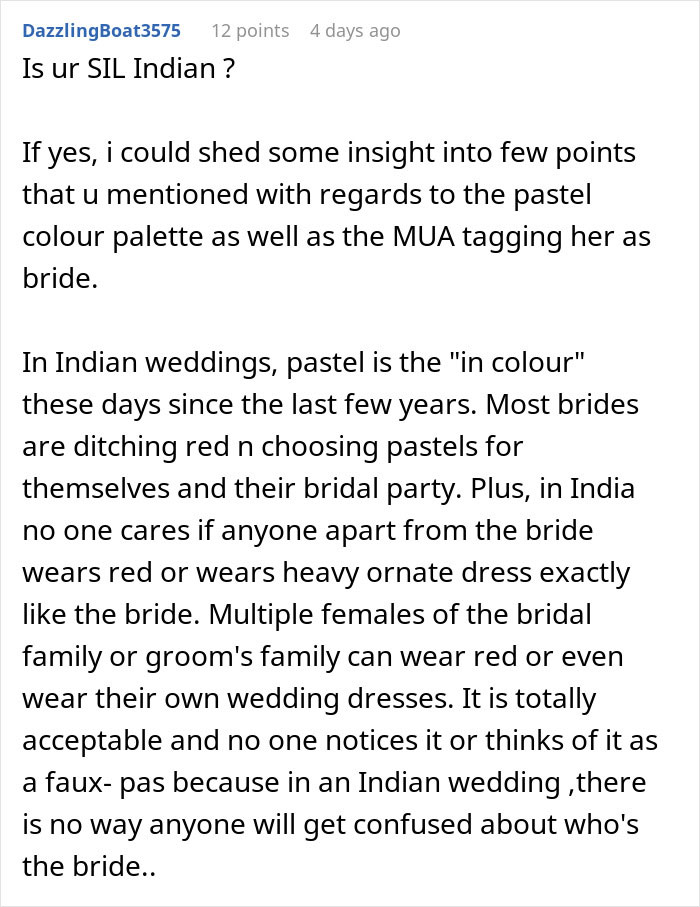
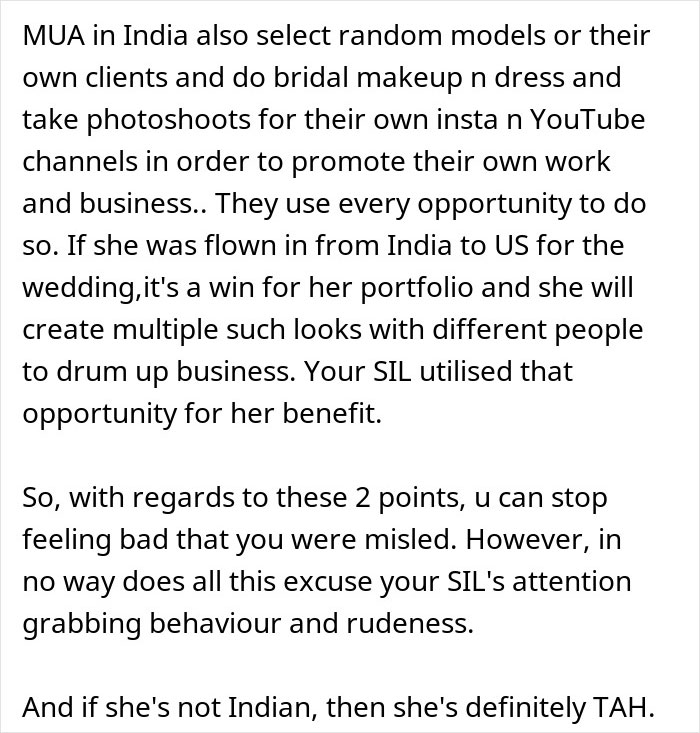


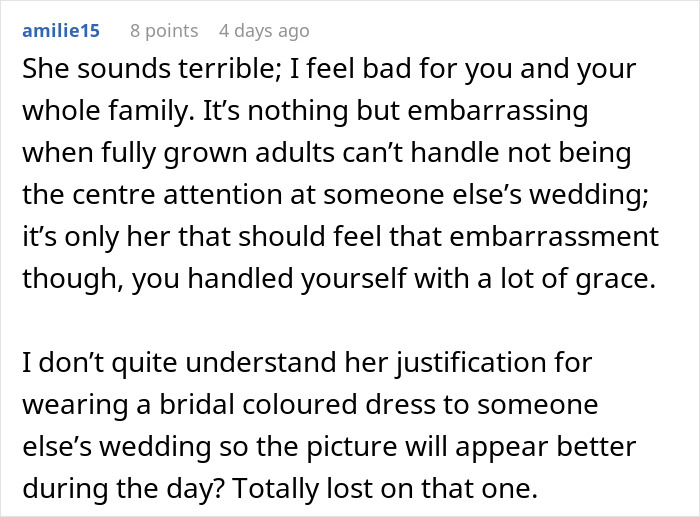






 Follow Us
Follow Us





